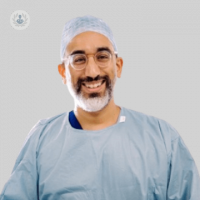Why is testicular cancer serious?
Potential to spread: Like many cancers, testicular cancer can spread (metastasise) to other parts of the body if not identified early and treated promptly. It can spread to lymph nodes in the abdomen (tummy), the lungs, or other organs, making treatment more complex and worsening survival rates.
Young men are often affected: Testicular cancer most commonly affects men between the ages of 15 and 49. For young men, a cancer diagnosis and subsequent treatment can have a significant impact on their physical and emotional health, fertility, and overall life trajectory.
Fertility concerns: Testicular cancer and its treatment (such as surgery or chemotherapy) can affect fertility. Many men are able to preserve their fertility by banking sperm before treatment.
Why is it highly treatable?
High cure rate: Even in instances where testicular cancer has spread, treatment with chemotherapy, surgery or radiotherapy can be very effective. The overall survival rate is more than 95%, and for early-stage testicular cancer, it's closer to 99%.
Responds well to treatment: Testicular cancer typically responds very well to chemotherapy and radiotherapy treatments, and most men who undergo treatment go on to live healthy lives.
Importance of early detection
Like many cancers, early detection is key to successfully treatment and improving survival. Young men are encouraged to perform regular self-examinations of their testes to check for lumps, swelling, or changes in shape or size. If any unusual changes are noticed, it is essential to seek medical advice promptly.
In summary, while testicular cancer is serious, in many cases it is highly treatable and has excellent survival rates, particularly when detected early. Regular self-examination and awareness of symptoms play a crucial role in early detection and treatment success.
Arrange a consultation with Mr Rajan via his Top Doctors profile.



